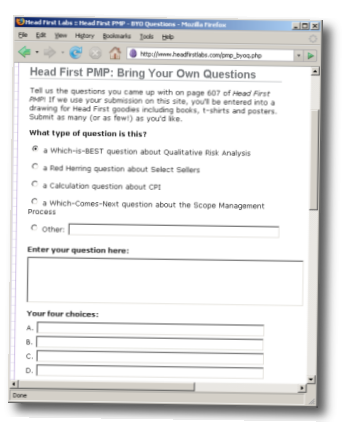Jenny and I put together a new PMP exam preparation drill to help you study the critical path method, an important topic for the PMP exam.
We spend a lot of time talking to people who are preparing for the PMP exam, and one concept that comes up over and over is using the Critical Path Method. It’s a somewhat tricky thing to study. Project managers preparing for the exam often have trouble with it, because it’s not just something you can memorize. Which is a shame—because once you understand the ideas behind it, it’s really useful… and a quick way to get some extra points on the exam. (Not to mention that it can help you in real life too, by helping you find the activities in your project that have the most risk.)
But even though this material is important, it’s often neglected in PMP preparation materials. We’ve found that a lot of people don’t understand it very well, and take the exam anyway. And it’s not surprising. When we were studying for the PMP exam ourselves, both of us were disappointed with the lack of a good guide to really help you learn these concepts. It’s one thing to memorize a bunch of stuff for test day. But it you really want to get it, you need two things: a good understanding of the real ideas behind critical path analysis, and a lot of practice. That’s what’s in these pages. We’ll take you through the concepts and their applications, and drill you on your knowledge. By the time you finish this, you’ll have a good handle on it… and you’ll definitely do better on the exam!
Head First PMP Links:
- The Head First PMP page at Head First Labs
- Our free 200 question practice PMP exam
- Our new critical path method drill
- Visit our free online forums, where you can ask questions that you have about the material on the PMP exam – we try to answer everything that’s posted there!

